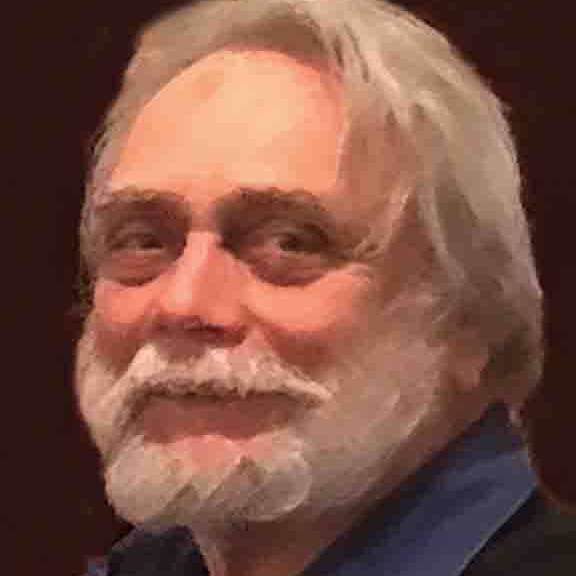
Inspired quite early in life by the writings of the Flemish mystic Maurice Maeterlinck, I realized early on that I would be a poet. My childhood in remote parts of Sonoma County’s countryside was pastoral and— due to a serious illness that isolated me from others for two years— contemplative.
I began writing for the theater at Santa Rosa Junior College, and reading my poetry in North Beach coffeehouses during the early Sixties. Those days were divided between demonstrations against the government and my undergraduate studies in English Literature at UC Berkeley, where I wrote my senior thesis on William Blake and his use of astrology as a poetic language.
I continued to write poetry and short stories, as well as writing for the stage, while pursuing graduate studies in Clinical Psychology at the University of San Francisco and establishing a private practice in Berkeley. When I met Maria half my lifetime ago— 40 years ago— I brought her back to Sonoma County to start our family where I had been raised.
My monthly column “Living Life Well” appears in the Kenwood Press, and I am at work on three major projects: a history of the Valley of the Moon in the 19th Century, a rather thorough memoir of this octogenarian’s life so far, and an epic-sized poem about the best way to be when civilization is overturned— based upon my rendition of the 13th Century Japanese poem Hojoki, Visions of a Torn World.
Visit My WebSiteThe End of History
I’m in a gorgeous place, here, at the end of history.
Beyond this, the landscape is empty, the future is empty.
The main house is empty, because the quarantine has emptied the world the way an egg is emptied when it is cracked open— and although the main house was built more than a century ago, and although hundreds and hundreds of unknown visitors have slept there since then, it is now achingly empty.
The air is not empty; it is filled with the sound of birds that have returned, calling to one another “they’ve gone, they’re finally gone!” now that this landscape is empty, and the visitors are gone.
This is the end of history. So many have come to visit here over more than a hundred years to sleep, to make love and to sleep, to eat, and to drink, and to make love and to sleep. Generations and generations have cascaded through those stairs and those balconies and those windows and those doors, and those political decisions were reached in those beds, and those lives were begun and were ended there. And now, history has ended here.
This is where we have come, to this: now.
I’ve been told about the stories that have happened here, about the way our valley, our nation, our world has been changed by what happened here. The magnificent, storied people, the tragic, damaged, legendary people, whose reputations ignore their mistakes and their transgressions and their attempts to salve such very human needs and appetites, and to promote such very human ambitions and drives.
Beyond this place, this place, is an empty page on which nothing is written, yet. I have not written that yet. I have not yet heard what to write here, not yet.
And there is a certain peace in this emptiness.
A dog barks in the distance, birds chirp in several foreign languages in symphonic conversation, a horse calls out its distant shout. I imagine they do not indulge in some prurient curiosity about something called the future. They are simply here, I imagine.
Of course I can’t know the philosophies they exchange, the ideas, opinions, the theories of what these human beings are doing, being here. I imagine they are simply present, chattering, chanting, singing. Are their songs articulations of complex explanations of why these humans occupy their landscape? —clutter their empty landscape? Do they exchange condolences and consolations, or are they laughing among themselves, and at us? Or worse yet, do they or do they not know that we are here at all?
Is it my belief that there is such a thing as a future? Did the gentleman rolling when he is done to one side in the narrow bed, away from her, in one of those storied rooms, think there is a future? Did the woman downstairs baking bread, counting the money, banking the fire, and folding the bills into her bosom, think there is a future? Did the dog sleeping before the banked fire dream there could be a future?
Did the history books and the countless students of history, and the professors of history in countless colleges and their countless students in countless college dormitories across the country and over the countless centuries, roll away from their textbooks, roll away from their sweethearts, roll away from their dreams, and ignore the future yawning like empty pages before them?
Yes, the future was empty to them, but we know what happened; to us it is our history. We glance at one one another and look away: we know. We know, but we aren’t talking, not to one another, not yet. Not until someone, some stranger from the future approaches us, excusing themself for intruding, coughs hesitantly and asks if they may speak to us about that blank page that is hovering before us.
And we turn towards them, a bit annoyed at the interruption of our question by their answer, and say: not just yet.
Not yet, not yet, we aren’t ready to know about that yet. We want to nourish this appetite, this curiosity, this need to know, just a little while longer. We want to sleep just a few more minutes. We want to dream just a few more minutes. Our dreams are more comforting than what we fear you might tell us.
It’s just so much more comfortable right here, than we think what you have to say, may make us feel.